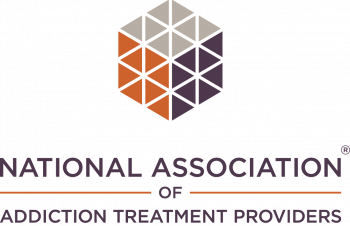Relapse prevention is an essential part of the recovery process. You may have heard people say that people must be ready to stay sober. There is a grain of truth in this statement. However, they can be prepared for sober life with proper treatment. At TruHealing Gaithersburg, we teach life skills and healthy habits to our relapse prevention program. We also incorporate mental health therapies to address and manage the core issues that lead to substance abuse to prevent relapse. To learn more about TruHealing Gaithersburg’s programs and services designed to assist with relapse prevention, reach out to us today at (833) 625-0398 to speak with a trained representative.
How to Prevent Relapse
Those in treatment programs need to complete their treatment plan to prevent relapse. If you are struggling with your treatment plan, your medical team, including a mental health therapist, should be able to adjust your treatment to help ensure a safe and lasting recovery.
Developing an aftercare program plan is important for completing your treatment at TruHealing Gaithersburg. We want you to leave our facility knowing that you have a strong safety net in place to manage high-risk triggers and decrease the possibility of relapse.
Those you have met in group therapy may be able to assist you as you return to everyday life and encounter the challenges associated with real-world triggers. A 12-step or other anonymous group can help you stay on track. It may make sense for some individuals to seek out a sober sponsor.
Continue Mental Health Therapy
Ongoing mental health therapy and treatment are important aspects of aftercare that help reduce the potential for relapse. A counselor can pick up on signs that you are struggling and help you continue to manage everyday stressors and sources of anxiety. A good therapist will adjust their techniques to suit your individual needs and work with you to stay on the path of sobriety.
Avoid Idle Time
Idle time is often the enemy of those in sobriety. Especially for those new to recovery, having too much time on your hands is an invitation to turn towards negative thoughts and return to problematic behaviors. Developing new hobbies or returning to rewarding hobbies you once enjoyed can help you manage free time when you are not working.
The Right Friends
Some of the individuals you used to spend time with are likely culprits who enabled you to make poor decisions. It will be important to avoid these individuals or, at the very least, limit your time with them. Exposure to people, places, and situations related to your addiction often triggers relapse. Finding new people to spend time with, new spaces to inhabit, and safe, sober situations to engage in friendship and community are key aspects to maintaining sobriety.
Common relapse triggers include:
- Certain physical places
- Interactions with certain individuals
- Certain sights
- Certain smells
- Healthy diet
- Anger
- Fatigue
- Loneliness
- Anxiety
- Stress
- Depression
- Insomnia
- Relationship issues
HALT
HALT is an acronym for Hungry, Angry, Lonely, and Tired. This is often referenced concerning withdrawal, cravings, and recovery. When you are craving to use, or simply feeling not quite right, ask yourself if you are feeling any of these symptoms.
The most common triggers for many in recovery are feelings associated with hunger, anger, loneliness, and feeling tired. Regularly stopping to think of HALT symptoms is a useful coping mechanism to reduce the risk of relapse.
Consider Journaling
Keeping a sober journal is a way to track your thoughts and habits from day to day. Looking back on this journal and, potentially, sharing excerpts of the journal with your therapist may help you learn from your thoughts and behaviors. Over time, you will be able to see a representation of your progress, and this should help you feel good about your ability to remain sober and continue to make healthy and positive choices.
Contact TruHealing Gaithersburg Today about Relapse Prevention
At TruHealing Gaithersburg, we put the safety and security of our clients first. Our relapse prevention program is designed to help those in recovery stay on the right path. At TruHealing Gaithersburg, we treat the whole person. This means focusing on the physical symptoms and integrating mental health counseling to ensure overall well-being. Reach out to us today at (833) 625-0398 to speak with a trained representative about the benefits of our relapse prevention program.









